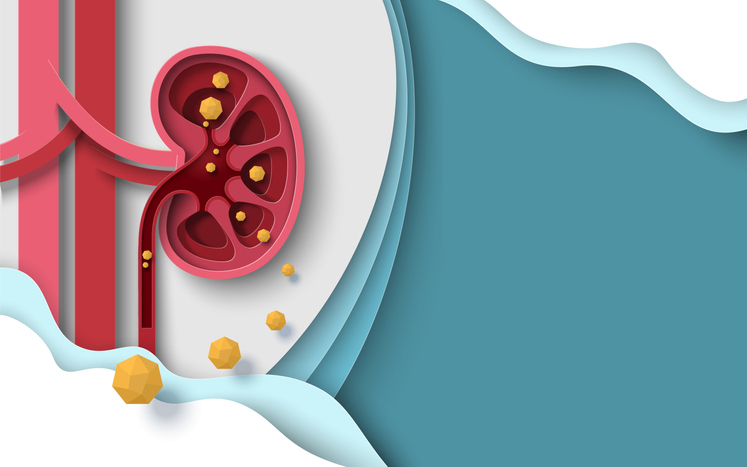Pain
What Are Kidney Stones?

Kidney stones, also referred to as renal calculi, nephrolithiasis or urolithiasis, are hard masses made of millions of tiny crystals. They can range in shape and may be as small as a grain of sand or as large as a golf ball. Large kidney stones may become trapped in the ureter, which is the duct that urine travels from the kidney to the bladder. This can result in severe pain, bleeding, and the inability to pass urine. Surgery may be needed for larger kidney stones.
Symptoms
Kidney symptoms vary depending on the size, location, and movement. Oftentimes, smaller kidney stones and those that do not move cause no symptoms. Any portion of the urinary tract can be affected by kidney stones. Common signs and symptoms include, but are not limited to, the following:
- Burning pain while urinating
- Cloudy urine
- Fever or chills, especially with an infection
- Foul-smelling urine
- Nausea or vomiting
- Pain that radiates to the groin and lower abdomen
- Pain that fluctuates in intensity or location
- Pain that comes and goes
- Pink, red or brown urine, indicating blood in the urine
- Urinating more frequently and in small amounts
Causes
The kidneys are bean-shaped organs located on each side of the spine. They remove waste and maintain the balance of water, minerals and salts in the body. After filtration, urine flows from the kidneys to the bladder through the ureters. If urine becomes too concentrated, it can fail to dissolve calcium, oxalate, phosphate, uric acid, and other minerals, which can cause them to crystallize. A kidney stone is the product of these crystals attaching to each other and forming a hard mass. There are also various conditions which may cause kidney stones, which include, but are not limited to, the following:
- Diet
- Excessive body weight
- Certain medical conditions
- Some supplements
- Specific medications
Risk factors
The likelihood of developing kidney stones are increased by several risk factors. They include, but are not limited to, the following:
- Age between 20 and 50
- White males
- Dehydration
- Diets high in meat, fish, beans, other protein-rich foods, sodium, or sugars
- Family history
- Urinary tract blockage
- Obesity
- Medical conditions, such as high blood pressure, diabetes, osteoporosis, gout, inflammatory bowel disease (IBD), weight loss surgery, etc.
- Taking certain medications, such as diuretics, calcium antacids, some antibiotics, or certain seizure medications.











